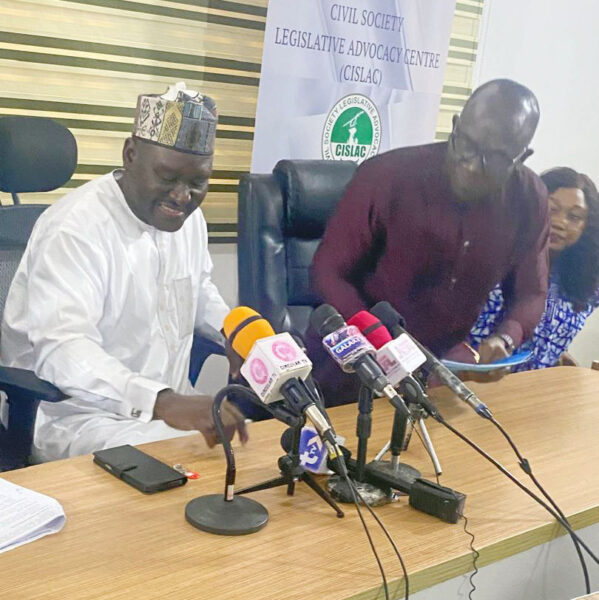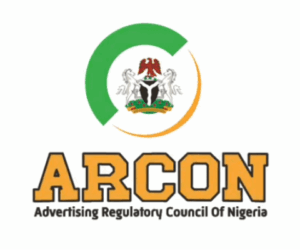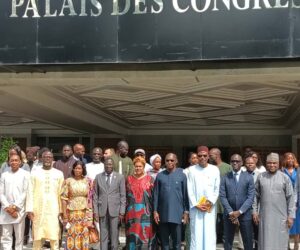1
The Nigeria Employers’ Consultative Association (NECA) and the Civil Society Legislative Advocacy Centre (CISLAC) have entered into a groundbreaking partnership aimed at strengthening governance, promoting responsible business conduct, and shaping Nigeria’s economic future.
The alliance, formalised through a Memorandum of Understanding (MoU) recently, in Abuja, is being described as both timely and strategic, given the nation’s persistent socio-economic challenges.
The collaboration underscores a recognition that while business and civil society may operate in distinct spheres, their interests are deeply intertwined.
Both organisations argue that Nigeria’s growth requires not just economic development but also governance reforms anchored in transparency, accountability, and fairness.
From the perspective of NECA, which is invariably the voice of organised business, and founded in 1957, it has grown into Nigeria’s foremost umbrella body representing private sector employers.
Over nearly seven decades, it has played a central role in shaping national economic discourse.
Its mandate covers enterprise sustainability, decent work, industrial harmony, and advocacy for policies that improve competitiveness and the ease of doing business.
NECA’s members cut across critical industries, manufacturing, oil and gas, finance, agriculture, and telecommunications, making it a powerful force in Nigeria’s economic landscape.
The association has consistently engaged government in policy dialogue on taxation, regulatory frameworks, labour market policies, and, more recently, climate-related transitions affecting industries.
According to the World Bank’s Ease of Doing Business Index, Nigeria still struggles with bureaucratic bottlenecks that discourage investment.
NECA has been at the forefront of addressing these issues, advocating for reforms that improve competitiveness, attract investment, and create jobs.
On the part of CISLAC, it has being in the business of relentlessly championing transparency and civic rights.
Established in 2005, it has established itself as one of Nigeria’s most influential non-governmental organisations.
As the national chapter of Transparency International, CISLAC has built its reputation on promoting accountability, civic participation, and rights-based governance.
Its advocacy has spanned public finance management, anti-corruption reforms, budget monitoring, and the defense of civil liberties.
CISLAC has played a central role in ensuring that Nigeria aligns with global standards on transparency, including commitments under the Open Government Partnership (OGP).
Its work has also amplified grassroots voices, ensuring that policy debates remain people-centered.
Not only has CISCLAC been serving as a check on government excesses, it has strongly been acting as a watchdog, highlighting the misuse of public resources and pushing for systemic reforms that prioritise accountability and fairness.
By partnering with NECA, it brings legitimacy, civic credibility, and grassroots reach into the advocacy space.
At this juncture, it is expedient to throw insight to why the partnership matters.
To start with, the MoU identifies priority areas of joint advocacy that cut across public policy, which entails engaging policymakers to design reforms that balance growth with social welfare, responsible business conduct, which ensures ethical practices and corporate citizenship.
The partnership, as gathered by Daily Independent, will push for a transparent and equitable tax regime, even as it would accelerate ease of doing business as it promises to remove red tape that stifles enterprise development.
Also bound to be subjected to improvement is decent work as the partnership is capable of protecting labor rights and advocating for safe and fair workplaces.
The partnership is also bound to be a betterment to climate change as it would promote sustainable and green practices within industries.
Also is gender inclusion as the partnership promises to address gender disparities and ensures women’s participation in governance and business.
Observers argue that these areas are critical for Nigeria’s long-term stability. Without good governance, business competitiveness suffers.
Without strong private sector growth, employment and social stability are jeopardised.
The partnership, therefore, represents an effort to break the cycle of fragmented advocacy.
Mr. Patrick Uwem, an economist, in his view said, “Such partnerships are indispensable. While the private sector drives economic reforms with its influence, civil society plays a vital role in ensuring transparency and accountability. Working together, they can advance reforms that are not only economically viable but also socially just.”
Similarly, Professor Pat Utomi, a political economist, has long argued that Nigeria’s governance and economy cannot thrive in silos.
“The nexus between accountability and enterprise cannot be ignored. When businesses operate in a transparent environment, competitiveness improves, and trust in governance grows.”
These sentiments underscore why the NECA-CISLAC partnership could represent a turning point in Nigeria’s reform journey.
Mr. Enoch Uweru, a social commentator, while expressing his view on the partnership, particularly from the perspective of the challenges ahead, said
“While the MoU signals commitment, implementation will determine its impact. Nigeria’s history is replete with partnerships that faltered due to lack of follow-through, political resistance, or vested interests”. Besides, critics caution that for this collaboration to succeed, both organisations must sustain momentum beyond the symbolism of the signing ceremony.
Furthermore, aligning private sector interests with civic advocacy may prove complex.
Businesses often prioritise profitability, while civil society emphasizes equity and accountability. Balancing these priorities without diluting either mandate will be a delicate task.
On the path forward, Uweru added that “despite the foreseeable challenges, the partnership offers more promises than most”, explaining that NECA brings economic influence and access to policymakers, while CISLAC provides civic legitimacy and grassroots advocacy, and added that this balance could help them push through reforms that benefit both businesses and citizens.
Adewale-Smatt Oyerinde, the Director-General of NECA, summed up the optimism at the signing event:
“This MoU is not merely a document; it is a symbol of our mutual commitment to tackling Nigeria’s most pressing challenges together.”
“If the partnership maintains focus on key deliverables, tax reforms, ease of doing business, labour rights, and climate-conscious policies, it could reshape the narrative around collaboration between private sector and civil society in Nigeria.
“More importantly, it could serve as a model for how diverse actors can work together to confront the country’s governance and economic challenges.
In fact, towards a Transparent and Prosperous Nigeria Nigeria’s road to prosperity has long been obstructed by governance deficits, policy inconsistencies, and weak institutional accountability.
Auwal Musa Rafsanjani, the Executive Director of CISLAC, emphasised that the alliance will yield significant results for the business community, and for the entire nation
He specifically said: “This partnership is a clear demonstration that progress is best achieved through collaboration, not division. It is a testament to the belief that when the private sector and civil society work as allies, we can drive meaningful, lasting transformation”.
The NECA-CISLAC alliance, by bridging the divide between business and civil society, sends a powerful message: that sustainable progress is best achieved through collaboration, not division.
If the partnership delivers on its promises, it could foster a more transparent, predictable, and fair environment where both citizens and enterprises thrive. In doing so, it may help unlock the much-desired economic renaissance and social transformation that Nigerians have waited for too long.








